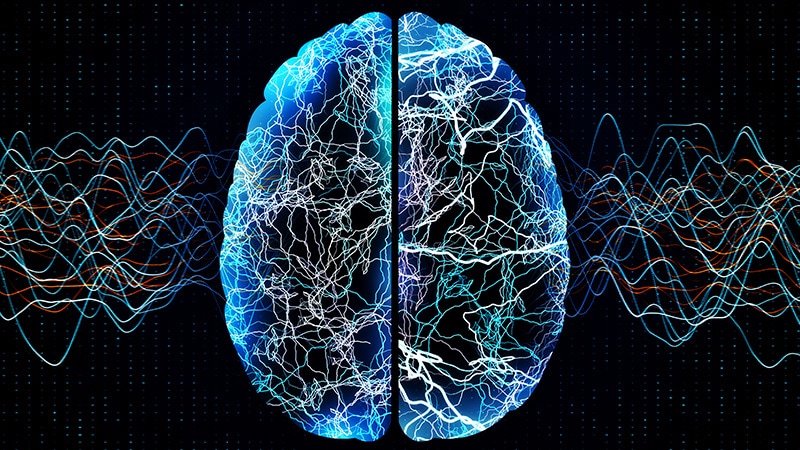AHA Recommends Cognitive Impairment Screening After Stroke
Core Concepts
Screening for cognitive impairment is crucial for stroke survivors to improve outcomes and quality of life.
Abstract
The American Heart Association (AHA) emphasizes the importance of screening for cognitive impairment in stroke survivors. The scientific statement focuses on the prevalence, diagnosis, and management of post-stroke cognitive impairment (PSCI). Key points include:
PSCI affects up to 60% of stroke survivors in the first year.
Cognitive recovery is most likely within the first 6 months after a stroke.
Up to 1 in 3 stroke survivors may develop dementia within 5 years.
Cognitive screening tests like the Mini Mental State Examination are commonly used.
Multidisciplinary care involving various specialists is essential for holistic stroke survivor care.
Prevention of recurrent strokes is crucial to reduce the risk of cognitive impairment and dementia.
Research is needed to develop effective treatments for post-stroke cognitive impairment.
AHA Backs Screening for Cognitive Impairment After Stroke
Stats
PSCI occurs in up to 60% of stroke survivors in the first year.
Up to 1 in 3 stroke survivors may develop dementia within 5 years.
Recurrent stroke is strongly associated with cognitive impairment and dementia.
Quotes
"It is important to screen stroke survivors for cognitive impairment as well as for associated comorbidities such as mood and sleep disorders." - Nada El Husseini
Key Insights Distilled From
by Megan Brooks at www.medscape.com 05-01-2023
https://www.medscape.com/viewarticle/991427
Deeper Inquiries
How can cultural and linguistic factors be integrated into cognitive screening after stroke?
Incorporating cultural and linguistic factors into cognitive screening after a stroke is crucial for ensuring accurate assessments and appropriate care for diverse populations. One way to achieve this integration is by utilizing culturally sensitive screening tools that consider the cultural backgrounds and languages of the individuals being assessed. These tools should be translated into multiple languages and adapted to reflect cultural norms, beliefs, and communication styles. Additionally, healthcare providers should receive training on how to administer these assessments in a culturally competent manner, taking into account factors such as language barriers, cultural taboos, and varying expressions of cognitive function across different cultural groups. By addressing these factors, healthcare professionals can improve the accuracy of cognitive screening results and provide more tailored interventions for stroke survivors from diverse cultural and linguistic backgrounds.
What are the potential implications of ineffective treatments for post-stroke cognitive impairment?
The implications of ineffective treatments for post-stroke cognitive impairment can have far-reaching consequences for both individual patients and the healthcare system as a whole. If treatments fail to effectively address cognitive impairment after a stroke, patients may experience prolonged disability, reduced quality of life, and increased dependence on caregivers. Inadequate treatment may also lead to higher rates of cognitive decline, dementia, and other long-term complications, placing additional strain on healthcare resources and increasing the burden on families and caregivers. Furthermore, the lack of effective interventions for post-stroke cognitive impairment can result in missed opportunities for early intervention and prevention of further cognitive decline. Overall, the failure to provide successful treatments for cognitive impairment after stroke can have significant personal, societal, and economic implications.
How can interdisciplinary collaboration improve the management of cognitive impairment in stroke survivors?
Interdisciplinary collaboration plays a vital role in enhancing the management of cognitive impairment in stroke survivors by bringing together a diverse team of healthcare professionals with complementary expertise and perspectives. By working collaboratively, neurologists, occupational therapists, speech therapists, nurses, neuropsychologists, gerontologists, and primary care providers can collectively assess, diagnose, and develop comprehensive treatment plans for cognitive impairment in stroke survivors. This multidisciplinary approach allows for a more holistic and individualized care strategy that addresses the complex needs of each patient. Additionally, interdisciplinary collaboration facilitates the coordination of care across different specialties, ensuring that all aspects of cognitive impairment, including physical, emotional, and cognitive components, are effectively managed. Through shared knowledge, resources, and perspectives, interdisciplinary teams can optimize the outcomes and quality of life for stroke survivors experiencing cognitive impairment.
0
More on Healthcare
